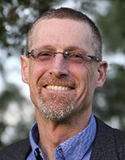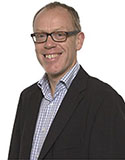
- This event has passed.
Seminar on Inclusive Economies for Cities and Regions
July 9, 2018 @ 12:00 pm - 2:00 pm
Event Navigation

Introduced by Karen Chapple, City and Regional Planning
Chris Benner, UC Santa Cruz: “Inclusive Economies: Conceptual, Measurement and Process Issues”
Incorporating insights from ecological economics, theories of social well-being, and concepts of pro-poor and inclusive growth, this talk will discuss insights from the application of a five-dimensional framework for analyzing and promoting more inclusive economies originally developed by the Rockefeller Foundation. Defining an inclusive economy as one that is equitable, participatory, growing, sustainable and stable, this initiative developed specific indicators that can be used to analyze progress towards more inclusive economies along these five dimensions at national and sub-national levels. Drawing on efforts to apply this framework at a sub-national scale in Colombia (cities), India (rural states) and South Africa (metropolitan regions), this talk will examine a range of theoretical and practical challenges of developing and applying this integrated framework across a range of contexts. With a particular focus on analyzing power relations and experiences of historically marginalized populations, this framework can be a useful tool for engaging a wide-range of stakeholders around processes to promote more inclusive economies.
Andy Pike, Newcastle University, UK: “Cities and Inclusive Growth”
In the wake of the crisis of 2008-09, recession, uneven recovery and the “Great Instability,” social and spatial inequalities have returned to the economic and political agenda internationally. The people and places “left behind” have become central to addressing the conundrum of rising economic nationalism and populism, and the legitimation crises convulsing governments across the world. The search is on for more “inclusive” forms of growth capable of sharing prosperity more widely in social and spatial terms and reducing or ameliorating disparities in economic and social conditions. Touching upon the pathology of contemporary capitalism, the ascendancy and definitions of “inclusive growth” are outlined as well as the relevance of the city/city-region scale and emergent critiques. Inclusive growth in practice is discussed illuminated by recent experiences in Scotland, Greater Manchester and a recent study for Joseph Rowntree Foundation on cities and demand-side policies for inclusive growth. The argument is that “inclusive growth” is an imperfect but workable concept for pragmatic utilization in efforts to bend the economy in more social directions and address social and spatial inequalities.
This event is organized by the UC Berkeley Department of City and Regional Planning and co-sponsored by the Institute for Research on Labor and Employment, the UC Berkeley Department of Geography, and the Haas Institute for a Fair and Inclusive Society.
 Dr. Chris Benner is the Dorothy E. Everett Chair in Global Information and Social Entrepreneurship, Director of the Everett Program for Technology and Social Change, and a Professor of Environmental Studies and Sociology at the University of California, Santa Cruz. His research examines the relationships between technological change, regional development, and the structure of economic opportunity, focusing on regional labor markets and the transformation of work and employment. He has authored or co-authored six books and more that 70 journal articles, chapters and research reports. His most significant books include: Equity, Growth and Community (2015), which examines diversity and dynamics of regional knowledge communities, and their relationship to social equity and economic growth; Just Growth (2012) which helps uncover the subtle and detailed processes, policies and institutional arrangement that help explain how certain regions around the country have been able to consistently link prosperity and inclusion; This Could Be The Start of Something Big (2009) which examines new regional movements around community development, policy initiatives, and social movement organizing; and Work in the New Economy (2002), an examination of the transformation of work and employment in the information economy. He received his Ph.D. in City and Regional Planning from the University of California, Berkeley.
Dr. Chris Benner is the Dorothy E. Everett Chair in Global Information and Social Entrepreneurship, Director of the Everett Program for Technology and Social Change, and a Professor of Environmental Studies and Sociology at the University of California, Santa Cruz. His research examines the relationships between technological change, regional development, and the structure of economic opportunity, focusing on regional labor markets and the transformation of work and employment. He has authored or co-authored six books and more that 70 journal articles, chapters and research reports. His most significant books include: Equity, Growth and Community (2015), which examines diversity and dynamics of regional knowledge communities, and their relationship to social equity and economic growth; Just Growth (2012) which helps uncover the subtle and detailed processes, policies and institutional arrangement that help explain how certain regions around the country have been able to consistently link prosperity and inclusion; This Could Be The Start of Something Big (2009) which examines new regional movements around community development, policy initiatives, and social movement organizing; and Work in the New Economy (2002), an examination of the transformation of work and employment in the information economy. He received his Ph.D. in City and Regional Planning from the University of California, Berkeley.
 Andy Pike is Henry Daysh Professor of Regional Development Studies in the Centre for Urban and Regional Development Studies (CURDS), Newcastle University, UK. His research interests are in the geographical political economy of local and regional development. He is widely published in international journals, author of Origination: The Geographies of Brands and Branding (Wiley-Blackwell, 2015), co-author of Local and Regional Development (Routledge, 2006 1st Edition and 2017 2nd edition) (with Andrés Rodríguez-Pose and John Tomaney), editor of Brands and Branding Geographies (Elgar, 2011) and Whither Regional Studies? (Routledge, 2009), and co-editor of Handbook of Local and Regional Development (Routledge, 2011) and Local and Regional Development – Major Works (Routledge, 2015) (with Andrés Rodríguez-Pose and John Tomaney). He has undertaken research projects for the Organisation for Economic Co-operation and Development (OECD), United Nations-International Labour Organisation (UN-ILO), European Commission, UK Government and national, regional and local institutions. He is currently working on city economic evolution and adaptation, manufacturing renaissance and the regions, ‘inclusive growth’, and the governance of local and regional economic development. He was Director of CURDS (2012-2017), an editor of Regional Studies (2005-13) and the founding Director of the Postgraduate Local and Regional Development programmes in CURDS (2002-14). He is an Academician of the UK Academy of Social Sciences and a Fellow of the Regional Studies Association.
Andy Pike is Henry Daysh Professor of Regional Development Studies in the Centre for Urban and Regional Development Studies (CURDS), Newcastle University, UK. His research interests are in the geographical political economy of local and regional development. He is widely published in international journals, author of Origination: The Geographies of Brands and Branding (Wiley-Blackwell, 2015), co-author of Local and Regional Development (Routledge, 2006 1st Edition and 2017 2nd edition) (with Andrés Rodríguez-Pose and John Tomaney), editor of Brands and Branding Geographies (Elgar, 2011) and Whither Regional Studies? (Routledge, 2009), and co-editor of Handbook of Local and Regional Development (Routledge, 2011) and Local and Regional Development – Major Works (Routledge, 2015) (with Andrés Rodríguez-Pose and John Tomaney). He has undertaken research projects for the Organisation for Economic Co-operation and Development (OECD), United Nations-International Labour Organisation (UN-ILO), European Commission, UK Government and national, regional and local institutions. He is currently working on city economic evolution and adaptation, manufacturing renaissance and the regions, ‘inclusive growth’, and the governance of local and regional economic development. He was Director of CURDS (2012-2017), an editor of Regional Studies (2005-13) and the founding Director of the Postgraduate Local and Regional Development programmes in CURDS (2002-14). He is an Academician of the UK Academy of Social Sciences and a Fellow of the Regional Studies Association.